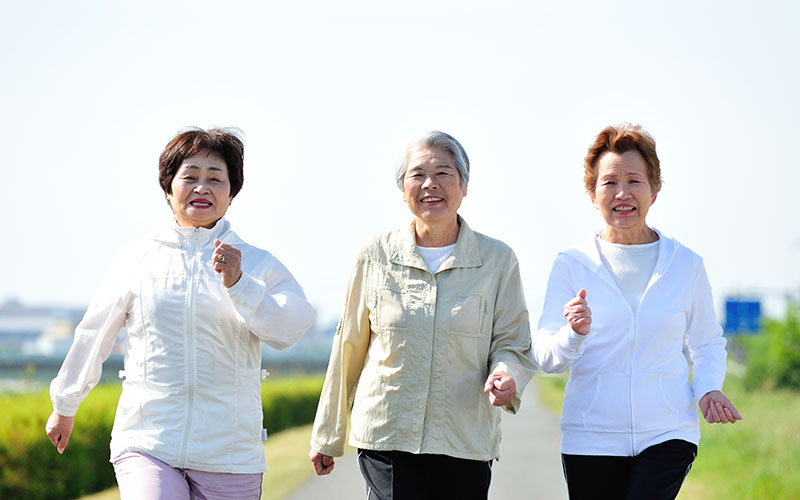
The risk of falling rises with age. And a simple fall could change your life—breaking a bone can be the start of more serious problems like injuries, disability, hospital visits and an overall decline in health. Don’t let the fear of falling keep you from the activities you enjoy—being active physically and socially helps you maintain health and prevent future falls.
- Stay physically active. Regular exercise makes you stronger—150 – 300 minutes a week is recommended. (A 10-minute walk after each meal, five days a week, gets you there!) Weight-bearing activities, such as walking or climbing stairs, may slow bone loss from osteoporosis. Lower-body strength exercises and balance exercises can help you prevent falls and avoid the disability that may result from falling.
- Getting together with friends or going to the local senior or community center helps you stay healthy.
- Have your eyes and hearing tested often. Always wear your glasses when you need them. If you have a hearing aid, be sure it fits well, and wear it.
- Find out about the side effects of any medicine you take. If a drug makes you sleepy or dizzy, tell your doctor or pharmacist.
- Get enough sleep. If you’re sleepy, you’re more likely to fall.
- Limit the amount of alcohol you drink. Even a small amount can affect balance and reflexes.
- Stand up slowly after eating, lying down, or sitting. Getting up too quickly can cause your blood pressure to drop, which can make you feel faint.
- Wear rubber-soled, low-heeled shoes that fully support your feet. Wearing only socks or shoes/slippers with smooth soles on stairs or floors without carpet can be unsafe.
- Fall-proof your home. See a list of home safety tips.

